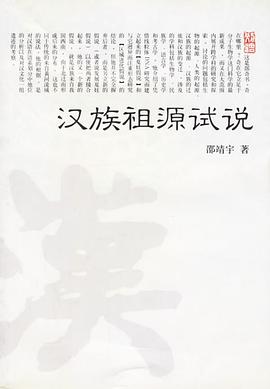

具体描述
http://www.complete-review.com/reviews/dyerg/butbeaut.htm
The complete review's Review:
But Beautiful is a paean to jazz, a study and homage in fictional form. Dedicated to his mentor, John Berger, Dyer follows in the master's footsteps in looking for novel approaches to presenting a literary work. In his preface Dyer states:
When I began writing this book I was unsure of the form it should take. This was a great advantage since it meant I had to improvise and so, from the start, the writing was animated by the defining characteristic of its subject.
The words are somewhat disingenuous; But Beautiful is a carefully constructed book, almost conventional as a piece of fiction. Dyer's statement is not meant to point to the fortuitous improvisational bent of the writing: he is emphasizing the form, wanting to make sure the reader does not dismiss the book as mere fiction.
Dyer also claims in his preface: "Before long I found I had moved away from anything like conventional criticism." It is a subtle trick, to get the reader to pay closer heed to the book and not treat it as some simple jazz-story collection. Because there is no reason, in picking up the book, to believe that it is criticism, conventional or otherwise -- unless someone makes that claim for it. As its author does. Planting the seed he explains his method (with justifications such as: "since even the briefest simile introduces a hint of the fictive"), defining his book then as "as much imaginative criticism as fiction." (His italics.)
All fiction is imaginative criticism (though most of it, like most criticism, is also superficial, beside the point, and unremarkable), but in emphasizing the point Dyer wants the reader to look at his book through different eyes. Mentor Berger did so well on occasion (and less well on others) -- though, generally, without thrusting the issue so directly in the reader's face. Young Dyer, perhaps still unsure of himself, wants to make sure that the reader gets what the author is after. Perhaps he is correct that the reader needs to be hit over the head to realize what is going on; more likely the reader will fail to understand regardless.
An afterword "picks up and expands some of the concerns of the main body of the text in a more formal style of exposition and analysis." Here is a straightforward, very conventional piece of criticism, useful but dry (in comparison with the preceding fanciful fiction), and Dyer carefully distances it from the body of the text. "(I)t is supplementary rather than integral to it." Fair enough, perhaps, though it begs the question why the critical aspect could not, in fact, be integrated in the body of the text, or presented in a manner that did make it integral to it.
These are quibbles, but Dyer is correct in thinking that form matters and thus form must be considered when considering the text. Dyer plays some neat tricks, but he does not live up to his stated claims.
That said it must be emphasized that But Beautiful is both a very good and a remarkable book. It tells the stories of many of the jazz greats, chapters (generally dark chapters) from their lives that sum them up. Separating the chapters is the one thread through the book, vignettes of a car trip by Duke Ellington and Harry Carney. The book, based firmly on fact (most of the events described are based on actual events), is entirely fictional -- in that uneasy modern balance of fact and fiction.
Dyer writes exceptionally well, only rarely trying too hard. The improvisational character of jazz can not be captured on the page: writing is fixed and inflexible once set down, jazz is essentially of the moment and, even more than most music, ever-changing. Dyer's writing does create the illusion of conjuring up the smoky world of jazz, though, in fact, the book is very carefully written -- and, in most respects, respectfully traditional. Dyer captures the sad stories of these jazz greats in the relatively short episodes he recounts, managing to make each story different and in its own way remarkable.
All the men Dyer writes about -- they include Chet Baker, Lester Young, Art Pepper, Charles Mingus, and Bud Powell -- are obsessed with jazz. It is all they can do or want to do, and they find it difficult otherwise living in the world around them. Dyer romanticizes the figures, seeing something noble in their madness and sadness. They exert a certain fascination, so far removed from the world at large and yet so supremely talented in one area. Several of the stories show the tragedy of their fate when it is no longer possible for them to make music. All of them are at sea, practically their only talent being jazz.
Dyer's portraits are very accomplished, reducing much of the essence of these complex lives to a few pages. Certainly this is how most people would like to see these jazz greats, all melancholy, drug-addled, perpetually drifting, and certainly these are good stories. Dyer also suggests the various mens' places in jazz history, who influenced them and who they influenced in turn, and what their music might have meant to them.
All well and good -- it is very well done and astonishingly good -- but what Dyer does here can not be overlooked: fact is fictionalized to (so the author) critical ends. Any fictionalization of fact is naturally a critical reading of those facts, but most writers do not emphasize that aspect of their fiction. Dyer does. Aesthetically accomplished, Dyer can seduce with his fiction, colouring fact. This truly is a book that presents the jazz masters as people like to think of them. As a product of a writer's imagination, even if based in fact, it should not be confused with fact. Naturally it will be. Arguably myth long ago replaced fact regarding the jazz world -- but Dyer stokes the fires of the myths. Perhaps this is what writers are meant to do. Were it merely presented as fiction we would mind less (though the difference would be merely semantic), but Dyer goes out of his way to claim this as a work of criticism. A dangerous step, a further blurring of already indistinct lines ? At least something to keep in mind.
But Beautiful is an exceptionally good read, an enjoyable book even for those who do not appreciate jazz. It is also an interesting book -- as a book about jazz, and for what it tries to do with the fictional form (an aspect that great attention should be paid to). Highly recommended.
作者简介
British author Geoff Dyer was born in 1958. He attended Corpus Christi College, Oxford. He has written several novels, a study of John Berger, and several books that his publishers describe as "genre-defying".
目录信息
读后感
爵士乐是如此迷人的一样东西。你行驶在黑暗的公路上,除了汽车的嗡嗡声外一片死寂,车灯如镰刀般割开了一道光,爵士乐就是这道光,它将黑暗铲到路的两边,让夜晚的蚊虫在光路上旋转飞舞。然后你眼前出现一切:舞台、欢笑、镇上的酒吧和人群…… 这不是一本爵士乐的历史,而是...
评分就像前言或者称为导读里面写的那样 杰夫·戴尔 总是边写边去思考 而不是实现决定要写一个什么才会去写 这本书里写了一些爵士乐历史上非常有名的人物 称之为圣徒也不为过 尽管爵士乐在生命的最初 是无法登入大雅之堂的 或者 这是所有新生事物的共性 而每一个人物 既有性格的...
评分没有人能缓解那种孤独,除了音乐,除了读书。 我想了一万句话要对你讲,却在,相聚的有限的时间里; 我见到你,我只会哭。 时间在你眼里留下踪迹,我不忍看你。 我不看你,你就还是以前的你。 我也不只是怀念你,我怀念以前的我自己。 如果有一天我厌倦了我自己,我想消失在漫...
评分 评分就像前言或者称为导读里面写的那样 杰夫·戴尔 总是边写边去思考 而不是实现决定要写一个什么才会去写 这本书里写了一些爵士乐历史上非常有名的人物 称之为圣徒也不为过 尽管爵士乐在生命的最初 是无法登入大雅之堂的 或者 这是所有新生事物的共性 而每一个人物 既有性格的...
用户评价
第四段评价: 《But Beautiful》这本书,简直就是一本心灵的疗愈指南,一本关于如何在不完美的世界里找到美好的教科书。我读这本书的时候,正好经历了一段比较低谷的时期,心情也比较压抑。但是,当我沉浸在书中的文字中时,我感到一种前所未有的平静和慰藉。作者的笔触是那么的温柔,仿佛一位经验丰富的智者,用最朴实无华的语言,为我揭示了生活的真谛。它没有空洞的说教,没有虚假的鼓励,而是通过一个个生动的故事,一个个细腻的描写,让我看到了生命中那些不为人知的闪光点。我尤其喜欢书中对“失落”和“遗憾”的处理方式。作者并没有回避这些负面情绪,而是坦然地面对它们,并从中提炼出一种独特的、带有诗意的美丽。它让我明白了,所谓的“美丽”并非全然的圆满,而是在残缺中找到的另一种圆满,是在经历过痛苦之后,依然选择向前看的坚韧。这本书让我重新找回了对生活的热情,让我看到了未来的希望。它就像一盏温暖的灯,照亮了我前行的道路,让我不再感到孤独和迷茫。读完这本书,我感觉自己好像获得了一种新的力量,一种能够面对一切挑战,并从中找到属于自己的“But Beautiful”的力量。
评分第三段评价: 初拿到《But Beautiful》这本书时,我并没有抱太高的期待,只是觉得名字挺特别的,就随手翻开。然而,我万万没有想到,它会给我带来如此巨大的惊喜。这本书的叙事方式非常独特,它不像传统的小说那样有清晰的起承转合,反而更像是一系列碎片化的回忆,或者是一些零散的感悟。刚开始的时候,我甚至有些跟不上作者的思路,感觉像是置身于一片迷雾之中。但是,当我耐下心来,慢慢地去体会那些文字背后的情感时,我逐渐发现,这片迷雾之中,其实隐藏着无限的风景。作者的文字有一种魔力,它能够将那些转瞬即逝的情绪,那些难以言说的感受,捕捉下来,并用最恰当的语言表达出来。我尤其欣赏它对人物内心世界的刻画,那种细腻入微,那种真实触动,让我感觉自己仿佛也成为了书中的一员,和他们一起经历着喜怒哀乐。这本书让我重新审视了“美丽”这个概念。它不再是关于外表的华丽,也不是关于物质的丰裕,而是一种内在的力量,一种在逆境中依然保持积极心态的能力,一种对生活的热爱和对未来的憧憬。它让我明白,即使是在最黑暗的时刻,也总有希望的光芒闪耀,只要我们愿意去寻找。这本书不是给你一个答案,而是引导你去思考,去探索,去发现属于你自己的“But Beautiful”。
评分第九段评价: 《But Beautiful》这本书,可以说是我近期阅读中,最具深度和温度的一本书了。它没有华丽的辞藻,没有复杂的剧情,但它却有着一种直击人心的力量。作者的文字风格非常朴实,却又饱含深情。他用一种非常平缓的语调,讲述着那些看似普通,实则蕴含着人生哲理的故事。书中的人物,他们或许平凡,或许有缺憾,但他们身上却散发着一种独特的光芒,一种生命不息、奋斗不止的光芒。我特别欣赏作者对“坚持”的描绘。它不是那种盲目的固执,而是在经历了无数次的失败和挫折之后,依然选择不放弃的精神。这种精神,是如此的鼓舞人心,让我感受到了生命的无限可能。这本书也让我对“希望”有了新的认识。它不是遥不可及的幻想,而是就存在于每一次的努力,每一次的尝试之中。它是一种即使在最黑暗的时刻,也能点燃内心的微光。读完《But Beautiful》,我感觉自己好像获得了一种新的视角,能够更加清晰地看到生活中的美好,也能够更加从容地面对生活中的挑战。它是一本值得反复阅读的书,每次阅读,都会有新的感悟。
评分第八段评价: 我最近读的一本《But Beautiful》,真是让我眼前一亮,耳目一新。它不是那种一页接一页的快餐式阅读,而是需要你放慢脚步,细细品味。作者的文笔有一种独特的质感,既有古典的韵味,又不失现代的通透。他擅长用最简练的文字,勾勒出最深刻的情感。书中的人物,他们没有被赋予过多的光环,他们只是普通人,有自己的烦恼,有自己的欲望,也有自己的坚持。然而,正是这份真实,让我感到无比亲切。作者对人物内心世界的挖掘,简直是神乎其技。他能轻易地抓住那些细微的情感波动,并将其放大,展现出人性的复杂与美好。我尤其喜欢书中对“成长”的描写。它不是一蹴而就的,而是一个充满曲折、充满试错的过程。但正是这些挫折,才让人物变得更加坚韧,更加成熟。这本书也让我重新思考了“美丽”的定义。它不再是外在的光鲜亮丽,而是一种内在的、发自灵魂深处的魅力。它是在经历过风雨之后,依然能够保持微笑的能力,是在跌倒之后,依然能够重新站起来的勇气。《But Beautiful》是一本让我感到温暖、感到力量的书,它让我更加热爱生活,也更加相信自己的可能性。
评分第一段评价: 天啊,我最近读完了一本叫做《But Beautiful》的书,感觉就像掉进了一个巨大的、五彩斑斓的梦境里。这本书,怎么说呢,它不是那种一眼就能让你豁然开朗的书,更像是你需要一点点地去品味,去感受。初读的时候,我甚至有些茫然,文字好像在跳舞,思绪在飞扬,但我总觉得抓不住它的核心。然而,随着我一遍一遍地翻阅,尤其是当我在午后阳光最温暖的时候,捧着它坐在窗边,那些原本散落的词语开始在我脑海里汇聚成一幅幅生动的画面。作者的笔触是如此细腻,仿佛拥有一种魔力,能将最抽象的情感具象化。我尤其喜欢其中描绘的那种淡淡的忧伤,不是那种撕心裂肺的痛苦,而是一种如同老照片泛黄的色调,带着回忆的温度,让人心头涌上一丝莫名的感触。它让我思考了很多关于人生的不确定性,关于那些我们无法掌控的际遇,以及在这些际遇中,我们如何寻找属于自己的那份“美丽”。有时候,你会觉得书中的角色离你那么遥远,他们的生活轨迹似乎与你毫无交集,但奇怪的是,你又能从他们身上找到自己的影子,感受到他们内心的挣扎与喜悦。这本书让我学会了去关注那些被忽略的细节,去体会那些隐藏在平凡生活中的不凡之处。它不是一个简单的故事,它更像是一场心灵的旅行,而《But Beautiful》就是那张指引方向的地图,虽然地图本身也充满了诗意和想象。读完它,我感觉自己对世界的感知能力好像被拓宽了,那些曾经习以为常的事物,如今在我眼中似乎都染上了一层特殊的色彩。
评分第十段评价: 读完《But Beautiful》这本书,我感觉自己好像完成了一次心灵的旅行,一次与自我深处的对话。它没有惊天动地的故事,没有跌宕起伏的情节,但它却有着一种润物细无声的力量,悄悄地改变着我的想法,触动着我的灵魂。作者的文字,就像一位饱经沧桑的老人,用他的人生阅历,为我讲述着那些关于爱、关于失去、关于成长的故事。他笔下的人物,他们或许并不完美,或许有过遗憾,但他们身上却闪烁着一种独特的光芒,一种即使身处困境,也依然选择善良和坚韧的光芒。我尤其喜欢书中对“和解”的描绘。它不是简单的放下,而是在深刻的理解之后,选择与过去、与他人、与自己达成和解。这种和解,带来的是一种平静,一种内心的安宁。《But Beautiful》这本书也让我对“美丽”有了全新的理解。它不再是外在的修饰,而是内在的修炼,是在经历过人生的风雨之后,依然能够保持一颗纯净的心,依然能够看到生活中的美好。它是一种内在的力量,一种能够穿越岁月,永恒存在的魅力。这本书,是一本能够让你静下心来,认真思考人生的书,也是一本能够让你在平凡的生活中,找到属于自己“But Beautiful”的书。
评分第六段评价: 说实话,《But Beautiful》这本书,真的会让你在不经意间,就被它的温柔力量所俘获。我一开始是被它简约却极具艺术感的封面所吸引,然后就抱着一种试试看的心态打开了它。结果,我被彻底征服了。它没有跌宕起伏的情节,没有狗血的冲突,但它却有着一种不动声色的力量,能够轻易地触动你的心弦。作者的文字就像一条潺潺的小溪,缓慢却稳定地流淌着,带着一种难以言喻的宁静感。它描绘的那些人物,他们的人生或许充满了坎坷,充满了不如意,但作者却能以一种极其平和的态度,去描绘他们内心的挣扎与成长。我尤其欣赏书中对“希望”的解读。它不是那种盲目的乐观,而是在认清现实的残酷之后,依然选择相信美好的存在。它是一种在黑暗中闪烁的微光,虽然微弱,却能给人无限的温暖和力量。这本书也让我开始重新审视自己的生活,那些曾经被我视为理所当然的事情,在读完这本书后,我才发现它们是多么的珍贵。它让我明白,所谓的“美丽”并非遥不可及,而是就存在于我们每一个当下,存在于每一次的呼吸,每一次的微笑,每一次的坚持之中。读完《But Beautiful》,我感觉自己内心好像被洗涤了一遍,变得更加柔软,也更加坚韧。
评分第二段评价: 我必须得说,《But Beautiful》这本书,简直就是一场文字的盛宴,一场灵魂的洗礼。它没有惊心动魄的情节,没有戏剧性的转折,但就是这样一本“朴实无华”的书,却在我心里留下了深深的烙印。我花了很长时间去消化它,不是因为难懂,而是因为它的每一句话都值得反复咀嚼。作者的语言有一种独特的韵律感,读起来就像在听一首低吟浅唱的歌,娓娓道来,却能直击人心最柔软的部分。书中的人物,他们不是英雄,也不是伟人,他们就是我们身边随处可见的普通人,有着平凡的梦想,也承受着生活的重压。但正是这份平凡,让我感到了前所未有的亲切。作者用一种非常温柔的方式,描绘了他们在困境中的坚韧,在失落中的希望,以及在无数次跌倒后,依然选择站起来的勇气。我常常会在阅读过程中停下来,陷入沉思,回想自己的人生经历,那些被我遗忘的片段,那些被我忽视的情感,似乎都在这本书里得到了重新唤醒。它让我明白了,即使生活不尽如人意,即使前方荆棘密布,也总有那么一丝“美丽”存在,只是需要我们用心去发现。这本书让我对“美”有了更深刻的理解,它不再仅仅是外在的,更是内心的,是生命力的展现。它提醒我,不要被物质世界的喧嚣所迷惑,而要去感受那些更深层次、更持久的情感价值。
评分第五段评价: 这本书《But Beautiful》给了我一种非常独特且深刻的阅读体验。它不像市面上很多畅销书那样,上来就抓住你的眼球,而是需要你静下心来,一点一点地去品味。它的语言风格非常考究,每一句话都经过了精心的雕琢,既有诗意的浪漫,又不失生活的真实。我特别喜欢作者对细节的捕捉能力,那些被我们日常生活中常常忽略的微小事物,在作者的笔下,都焕发出了别样的生命力。它让我意识到,原来生活中的“美丽”并非总是宏大而耀眼的,更多的时候,它就隐藏在那些不起眼的角落里,等待着有心人的发现。书中的人物,他们的故事或许平淡,甚至有些悲伤,但作者却能从中挖掘出一种令人动容的力量。这种力量并非是惊天动地的英雄主义,而是平凡人在逆境中展现出的韧性,是在绝望中寻找希望的勇气。它让我思考,什么是真正的“美丽”。它不是肤浅的快乐,也不是短暂的辉煌,而是一种能够穿越时间和空间的、 enduring 的力量。这本书也让我对“不完美”有了新的认识。它不再是遗憾,而是成为了一种独特的存在,一种值得被珍视的印记。它让我更加接受自己的不完美,也更加欣赏他人的不完美。总而言之,《But Beautiful》是一本值得反复阅读的书,每一次阅读,都会有新的发现,都会有新的感悟。
评分第七段评价: 《But Beautiful》这本书,绝对是一股清流,一股能涤荡心灵的清流。我花了相当长的时间去读它,不是因为它晦涩难懂,而是因为它实在是太有味道了,每一句话,每一个词,都充满了深意。作者的叙事方式非常写意,像是泼墨山水画,不拘泥于细节,却能勾勒出意境。他笔下的人物,他们并没有什么惊天动地的壮举,他们只是平凡地生活着,经历着生命中的喜怒哀乐。然而,正是这种平凡,才显得尤为真实和动人。作者用一种极其细腻的笔触,去描绘他们内心的波澜,去展现他们在平凡生活中所展现出的非凡之处。我印象最深刻的是书中对“遗憾”的描述。它没有被简单地定义为失败,而是被赋予了一种别样的、带有沉淀的美感。它让我明白,人生本就不可能完美,而那些所谓的“遗憾”,恰恰是构成我们生命独特性的重要部分。这本书也让我对“幸福”有了更深刻的理解。它不是那种短暂的狂喜,而是一种内心的满足,一种对生活的热爱,一种即便在逆境中也能找到慰藉的能力。它像是一场心灵的按摩,让我感觉轻松了很多,也更加懂得珍惜当下。
评分我觉得这书要给我翻译,一定会忍不住手痒(jian)把作者那些故意语焉不详,吞吞吐吐,半真半假的人名和轶事全都加注,气死作者……
评分我觉得这书要给我翻译,一定会忍不住手痒(jian)把作者那些故意语焉不详,吞吞吐吐,半真半假的人名和轶事全都加注,气死作者……
评分Excellent and beautiful writing, about precisely speaking, the jazz master musicians rather than jazz itself. However, the vivid and exquisite descriptions of what happened with supplemental imagination that form this unique expression of the author,makes you seemingly watch the cinematic moments in history and long to listen to those masterpieces.
评分我觉得这书要给我翻译,一定会忍不住手痒(jian)把作者那些故意语焉不详,吞吞吐吐,半真半假的人名和轶事全都加注,气死作者……
评分THE most beautiful writing about Jazz I have ever read.
相关图书
本站所有内容均为互联网搜索引擎提供的公开搜索信息,本站不存储任何数据与内容,任何内容与数据均与本站无关,如有需要请联系相关搜索引擎包括但不限于百度,google,bing,sogou 等
© 2026 book.wenda123.org All Rights Reserved. 图书目录大全 版权所有




















